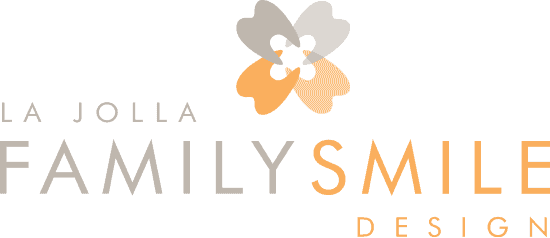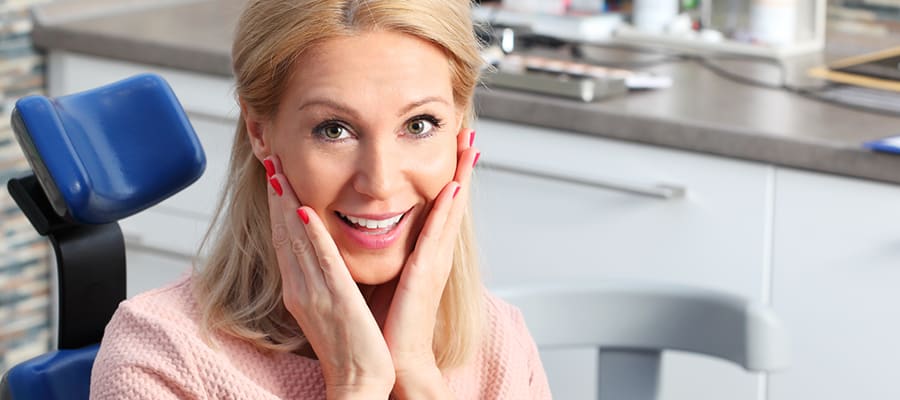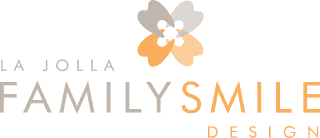
Dr. Jaime Breziner, Dr. David Vasquez and Dr. Garry Bloch of La Jolla Family Smile Design are committed to the diagnosis, treatment and prevention of problems affecting the teeth and gums. You may be surprised to learn that we are also at the forefront of the detection and treatment of a sleep disorder called obstructive sleep apnea.
Obstructive sleep apnea is characterized by repeated brief cessations in breath that occur when the upper airway becomes blocked during sleep. Dentists are often the first healthcare providers to discover signs of obstructive sleep apnea; they do so by simply looking into a patient’s mouth. Our advanced knowledge of the anatomy of the mouth helps us catch cases that may otherwise go unnoticed.
Understanding Obstructive Sleep Apnea
Obstructive sleep apnea is a condition in which the soft tissues in the rear of the throat collapse during sleep, partially or completely blocking the airway and interrupting the normal flow of breath. The breathing interruptions can last a few seconds up to a full minute or more, and they can occur hundreds of times per night.
Chronic cycles of decreased oxygenation are extremely dangerous to overall health, raising the risk of problems like high blood pressure, diabetes, stroke and heart disease. A chronic lack of quality sleep also takes a toll on mental health, contributing to chronic daytime exhaustion, mood swings, anxiety and depression.
Obstructive Sleep Apnea Signs and Symptoms
General warning signs of sleep apnea include snoring and choking or gasping noises during sleep. Snoring occurs when the flow of air through the mouth is blocked, and choking or gasping noises indicate the body has resumed breathing after a pause.
Signs of sleep apnea that may be detected during an oral exam include worn tooth surfaces, broken teeth and inflamed or receding gums. These clues suggest involuntarily grinding or clenching the teeth at night as a signal to the brain to partially wake up and take a breath. Other oral health signs that indicate possible sleep apnea include a small jaw, a tongue with scalloped edges or redness in the throat.
If we notice any of these clues during one of your routine exams, we will ask you some simple screening questions to determine your individual risk for sleep apnea. We can also refer you to an appropriate sleep specialist for an official screening and sleep study. Once you are formally diagnosed, our team can ensure you get the best treatment for your sleep apnea.

Sleep Apnea Treatment Options
Continuous positive airway pressure (CPAP) therapy is a popular way to treat sleep apnea. A machine blows pressurized air into a mask worn over the nose and mouth to keep the airway open. But CPAP machines are often criticized for being loud, bulky and disruptive to sleep.
As an alternative, our team can provide you with a customized dental appliance that shifts and supports your jaw to keep your airway open during sleep. There are a few different types of appliances, and we can recommend the most effective solution for you. We will provide fitting and adjustments for the appliances and can monitor you over time to ensure your appliance works. We will also coordinate with your other healthcare providers to track your progress.
Sleep Apnea Treatment FAQs
What are the risk factors associated with sleep apnea?
Sleep apnea can occur in patients of all ages and backgrounds, but the condition is more common in certain groups of people, including:
- People over 60 years of age
- Individuals who suffer from obesity or those who carry around extra weight
- Those who take certain medications, such as opioids
- Individuals with heart problems, such as congestive heart failure
Can sleep apnea affect my health?
Untreated sleep apnea can present a significant risk to your cardiovascular and metabolic health.
Diabetes: Unchecked sleep apnea can make managing diabetes challenging for many patients. Because breathing pauses during sleep, carbon dioxide levels in the blood can rise. This can cause insulin resistance, high blood pressure, elevated risk of heart disease, and headaches upon waking. Additionally, the lack of quality sleep can leave patients with diabetes tired and unmotivated to plan their meals as needed or exercise, two things that can help in the management of their condition.
Stroke: Obstructive sleep apnea can raise the risk of stroke, which occurs when a blood vessel responsible for delivering blood to the brain becomes obstructed, reducing blood flow to the brain. This can be traced back to the negative air pressure inside the chest that is created by repeated breathing interruptions. Stroke may also occur due to a decrease in oxygen saturation, which can lead to changes in the vessels within the brain.
Heart health: Sleep apnea is also linked to cardiovascular health, with the condition contributing to other risk factors that can affect the heart such as atrial fibrillation and hypertension.
What does sleep apnea in children look like?
Sleep apnea can affect children in different ways. If your child has the following symptoms, they may be experiencing sleep apnea:
- Issues with focusing on tasks
- Poor performance in school
- Snoring loudly
- Bedwetting
- Frequent movements while asleep
- Night sweats
How is sleep apnea diagnosed?
If you suspect you may have sleep apnea, the next step is to work with your healthcare providers as well as the experts at LJFSD. Sleep tests may be conducted, including:
Overnight sleep study: This type of test occurs at a medical facility where the quality of your sleep will be evaluated. It requires sensors that track your heart rate, blood oxygen levels, and many other important factors related to your health and sleep.
Home test: A home test allows the patients to complete a sleep study from the comfort of their home. However, it is common for experts to recommend that the results from this test be confirmed with an overnight sleep study at a facility.
How can a customized oral appliance help with my sleep apnea?
Oral devices can help you achieve more restful, high-quality sleep with sleep apnea. Because OSA occurs when the windpipe is blocked, a customized oral device can ensure that your jaw and tongue remain in an ideal position, keeping the pressure off of your windpipe.
Is a store-bought oral appliance just as effective?
When it comes to sleep apnea treatment, it is best to see the treatment of professionals who understand your unique needs. Many gadgets on the market that claim to treat sleep apnea may not be reliable. Additionally, consumers are limited when it comes to verifying the safety of the product. On the other hand, a customized oral appliance provided by a dentist is created to be effective for your dental anatomy, offering patients comfort, safety, effectiveness, and ease of use.
Learn More About Sleep Apnea
If you have questions about sleep apnea detection or treatment, La Jolla Family Smile Design is here for you. Please give us a call or send us an email to request more information from our team.






